by Lucy | Aug 22, 2017 | biblical counseling, book reviews, emotions, relationships |
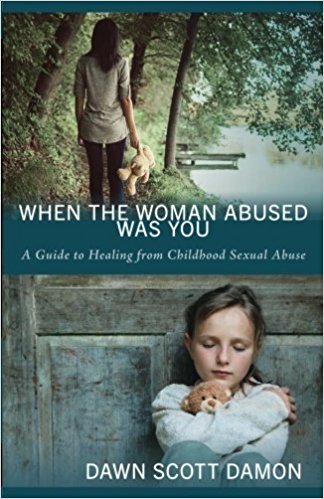 You have a choice to heal, even when you’ve faced childhood sex abuse, among the most awful experiences a woman can have. In this article by acclaimed author Dawn Scott Damon, you’ll discover potholes on the road to recovery.
You have a choice to heal, even when you’ve faced childhood sex abuse, among the most awful experiences a woman can have. In this article by acclaimed author Dawn Scott Damon, you’ll discover potholes on the road to recovery.
BONUS: BOOK GIVEAWAY! If you’d like to enter the giveaway for Dawn’s latest book, When the Woman Abused Was You, leave a comment at this blog post or contact me. Use the words, “I want Dawn’s book!” I’ll contact the winner through email by Friday. Thanks! –Lucy

Some women live for decades unaware of their abusive past. Others who were abused as children live in the shadows of shame, afraid to confront the monsters of the past. Still other women let their abuse define them.
But there is another choice: the choice to heal.
Click & Tweet!
The choice to heal can be difficult, yet it is the only choice that brings healing and new life.
So what things hold us back from making the choice to heal?
Potholes on the Road to Recovery
FEAR: We are afraid we will slip into an emotional “hole” and never get out again. Or we’re
afraid to give up our old coping mechanisms or to be seen as “weak.” Or we may fear going
crazy, losing a relationship, or facing the truth or allowing ourselves to feel. No matter the
fear, denial is destructive. Ignoring a wound only brings festering. Commit to honestly looking at your past and grieving your losses.
PRIDE: We’re unwilling to admit we have a problem. We’re not one of “them.” We don’t want to be identified as weak or a sexual abuse survivor. Everyone else has a problem. We default to
control and manipulation, and we are afraid to trust people.
NEGATIVE ATTITUDE: We develop a victim mindset. We stake a claim for what we believe we deserve and build a case for ourselves. But our attitude is our choice and the basis of self-control. We can refuse to think like a victim
by refuting “thought saboteurs.”
THOUGHT SABOTEURS:
anger, apathy, blame, criticism,
depression, dishonesty, fear, guardedness, hatred, indifference, intolerance, irresponsibility, jealousy, mistrust, pessimism, pride, resentment, revenge, sadness, self-pity, shame, skepticism, suspicion, and a victim mentality.
Self Evaluation
Are you struggling with pain from your past? With
childhood abuse? Is it time to take steps toward
healing? Pray through the areas above and ask God to help you
face your fears and recognize pride,
negative attitudes, and thought saboteurs. You’ve taken your first steps toward healing, and your life
will never be the same
You’ve carried scars long enough. It’s time to shed the layers of pain that hold you captive and find freedom and healing.
In When the Woman Abused Was You, author, pastor, and survivor Dawn Scott Damon openly shares from her own abuse experience and serves as a guide to help you make your way through the arduous healing journey. With raw and honest transparency, Dawn helps you take the necessary steps that will lead you to your own powerful breakthrough and personal healing encounter.
Experience new freedom you never thought possible. The journey may be difficult—even exhausting—but you’ll find reward and fulfillment as you transform into a confident, fulfilled, and overcoming woman.
“You’ve carried scars long enough. Its time to shed the layers of pain that hold you captive and find freedom and healing.” ~ Dawn Scott Damon
About Dawn
 Dawn Scott Damon is a pastor, speaker, and author whose most recent book, When the Woman Abused Was You, released in 2017 and is the second book in a series. Dawn’s first book in this series, When A Woman You Love Was Abused has touched thousands of lives – both men and women.
Dawn Scott Damon is a pastor, speaker, and author whose most recent book, When the Woman Abused Was You, released in 2017 and is the second book in a series. Dawn’s first book in this series, When A Woman You Love Was Abused has touched thousands of lives – both men and women.
Dawn worked closely with New York Times bestselling author Cecil Murphey (90 Minutes in Heaven, When A Man You Love Was Abused) and together they presented a conference, When Someone You Love Was Abused, Help for Those Suffering from Childhood Traumas, in Michigan and Georgia..
Dawn also writes a blog for women who have experienced trauma. It is named Freedom Girl Sisterhood at freedomgirlsisterhood.com.
Sharing Hope with Your Heart,

by Lucy | Aug 3, 2017 | biblical counseling, book reviews, emotions, relationships
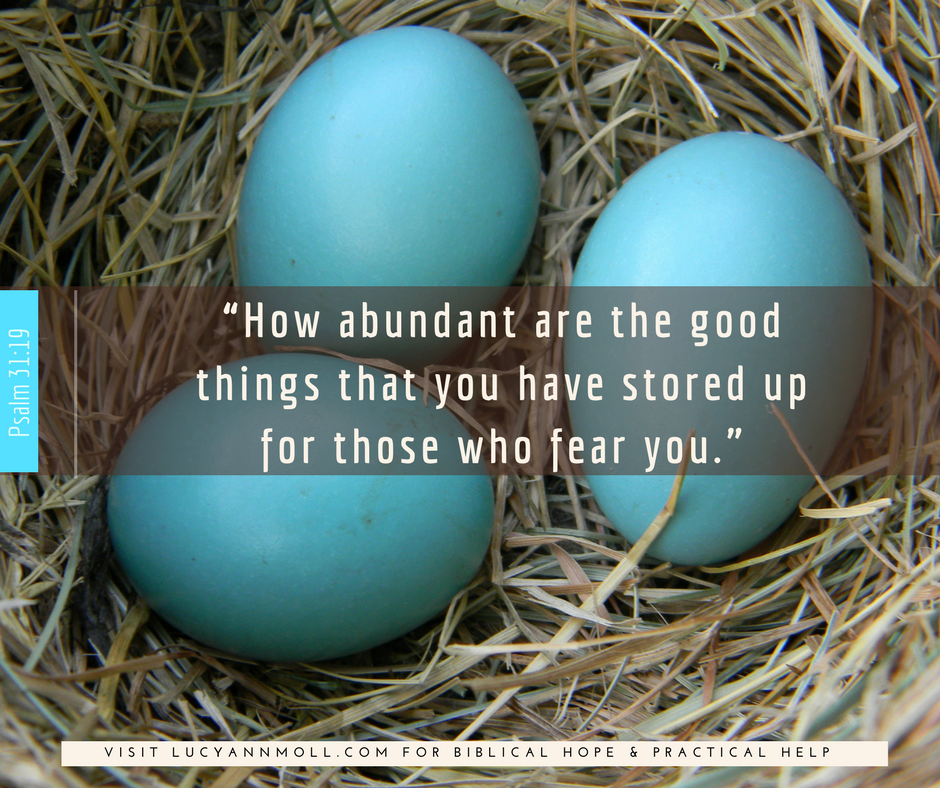 Empty nest. My friend Karen excitedly watched her three young adult children take flight. But my frend Diane felt uneasy. Her son had made bad choices in high school. Would he waste college too? And Dee had one heck of a time getting her daughter to leave the nest.
Empty nest. My friend Karen excitedly watched her three young adult children take flight. But my frend Diane felt uneasy. Her son had made bad choices in high school. Would he waste college too? And Dee had one heck of a time getting her daughter to leave the nest.
All three are adjusting to the empty nest, but only one is loving it. So far.
In this two-part series on the empty nest, you’ll discover. . .
- Best way to prepare your empty nest, whether your kids are just out of high school or farther down the road. Read part one.
- How to adjust and love the empty nest, including finding romance and investing in grandbabies.
The Empty Nest Book!
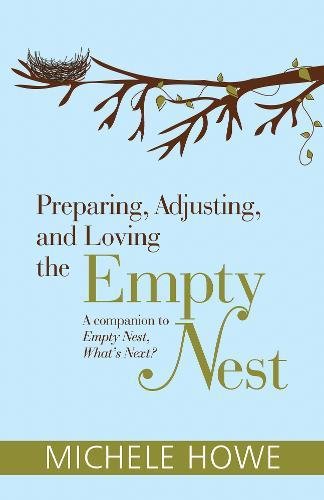 Author Michele Howe has written a book for any parent who finds herself in the midst of an empty nest. Preparing, Adjusting, and Loving the Empty Nest tackles the questions moms face, the emotions they encounter, and the changes soon to come. I strongly recommend it. See the book on Amazon here.
Author Michele Howe has written a book for any parent who finds herself in the midst of an empty nest. Preparing, Adjusting, and Loving the Empty Nest tackles the questions moms face, the emotions they encounter, and the changes soon to come. I strongly recommend it. See the book on Amazon here.
In a friendly, interactive style, Michele shares spiritual wisdom from the likes of seasoned biblical counselor Paul Tripp, take-away action steps, personal stories, and prayers. Indeed, it is a cross between a devotional and a parenting how-to book.
While an older empty nest-er would find encouragement, hope, and practical ideas in the pages of Preparing, Adjusting, and Loving the Empty Nest, it best suits moms who are entering this season of life.
Adjusting to the Empty Nest
DEALING WITH LONELINESS: One day Michele looked at the tree where her kids loved to climb, then her heart hurt. She tripped down memory lane–Easter egg hunts, Fourth of July fireworks, Thanksgiving feast, and Christmas joy–and began to feel lonely and sad. Isn’t it true that the older we get, we see life differently?
Michele says that one way to reduce emotional grief is by learning to live in the present and to be present. She asks, How can spending too much time reminiscing bring on sadness? How can you be more present today and look out for others in need of friends?
Take-Away Action Thought
When I begin to dip into sadness, I will search for those who need encouragement, help, and hope.
INTERCEDING FOR YOUR CHILDREN: Don’t you agree that moms who take their worry to God in prayer fare better than those who don’t? One way to be consistent in prayer is by keeping a prayer journal. So how does it work practically?
When your son or daughter calls or texts to tell you of a problem their facing, turn to your prayer journal, jot the details, date it, and pray. “The more time I spend perusing my prayer journal, the more my faith is strengthened, and the more inner peace I experience,” Michele shares. Her prayer journal dates back ten years! (Another help is Transform Your Thought Journal — an ebook for godly mind renewal.)
How abundant are the good things
that you have stored up for those who fear you,
that you bestow in the sight of all,
on those who take refuge in you.
Psalm 31:19
Loving the Empty Nest
REINTRODUCING ROMANCE: Every couple struggles sometimes. So it’s important to honestly appaise your marriage, own up to your mistakes, ask forgiveness, and start afresh. But you also must plan time to talk and have fun together.
Take-Away Action Thought
I will proactively make plans for enjoyable activities together every single week by getting the calendar out and marking specific dates/time.
STEPPING UP HEALTHY LIVING PLANS: “When my fifty-something body rejects the idea of getting up and moving. . .I am grateful that my child-rearing days are over,” Michele quips. It’s time to reevaluate fitness goals and to eat right, exercise, and get enough sleep. (A superbly helpful guide is this eBook: Fit for Life.)
INVESTING IN GRANDCHILDREN: This takes intentionality! Plans that truly matter don’t just happen. Rather, you pray, you plan, you proceed!
Click & Tweet!
When your grandkids live close, you’ll get to attend their school and church activities. But if you’re many hours away (by car or plane), you still can enjoy fun ways to love the little ones long-distance but you’ll need to plan. Right now list a plan of at least six different ways to practically show love to your grandchildren this month.
Friends, do you need prayer or have a question, why not contact me? I aim to answer within the day, God willing.
Sharing Hope with Your Heart,

by Lucy | Aug 1, 2017 | biblical counseling, book reviews, emotions, relationships
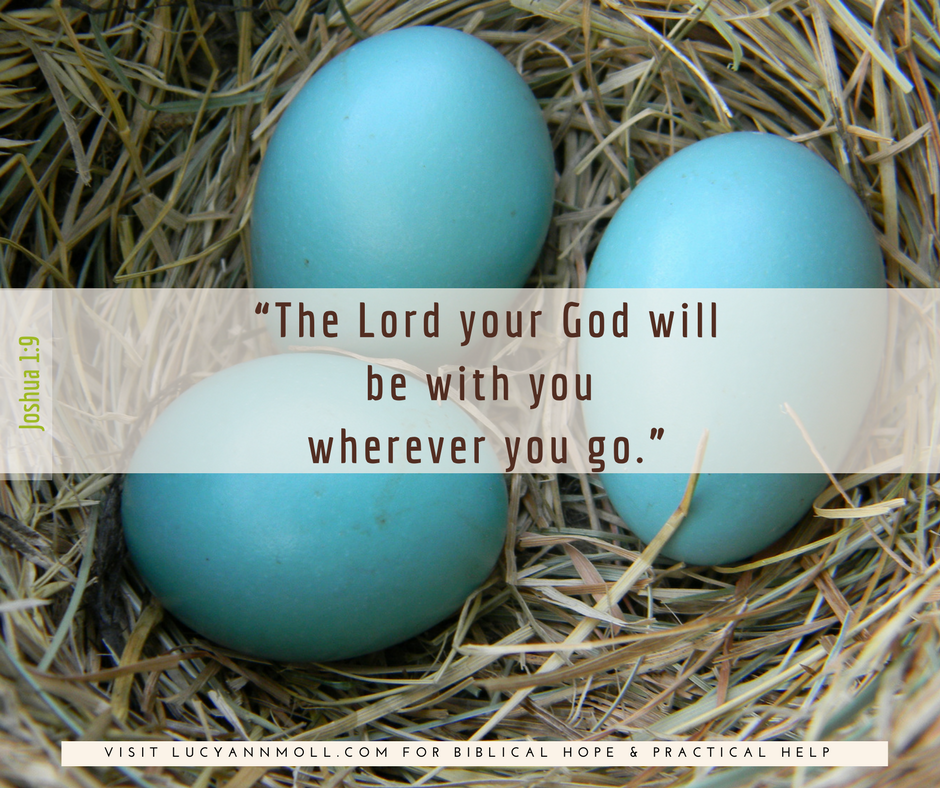 Empty nest. Some women expectantly watch their adult children take flight and do life on their own. Other mothers fear their children leaving home. Still others must push them out the door. . .or the millennials may stay, like, forever.
Empty nest. Some women expectantly watch their adult children take flight and do life on their own. Other mothers fear their children leaving home. Still others must push them out the door. . .or the millennials may stay, like, forever.
In this two-part series on the empty nest, you’ll discover. . .
- Best way to prepare your empty nest, whether your kids are just out of high school or farther down the road.
- How to adjust and love the empty nest, including finding romance as an empty nester, planning retirement, and welcoming grandbabies.
The Empty Nest Book!
 Author Michele Howe has written a book for any parent who finds herself in the midst of an empty nest. Preparing, Adjusting, and Loving the Empty Nest tackles the questions moms face, the emotions they encounter, and the changes soon to come. I strongly recommend it and wished I had it when I counseled a 50-something mom I’ll call Mary. See the book on Amazon here.
Author Michele Howe has written a book for any parent who finds herself in the midst of an empty nest. Preparing, Adjusting, and Loving the Empty Nest tackles the questions moms face, the emotions they encounter, and the changes soon to come. I strongly recommend it and wished I had it when I counseled a 50-something mom I’ll call Mary. See the book on Amazon here.
Mary, whom I counseled by Skype, lived in western United States with her husband and adult son. The son was nearing age 30, had a decent paying job in sales, and hunkered down at home. And he promised to look for an apartment. . .soon. But his empty promise “was just a way to get me off his back,” Mary admitted. “How can I encourage him to face the world, and at the same time, prepare for an empty nest?”
In a friendly, interactive style, Michele shares spiritual wisdom from the likes of seasoned biblical counselor Paul Tripp, take-away action steps, personal stories as well as prayers. Indeed, it is a cross between a devotional and a parenting how-to book.
While an older empty nest-er would find encouragement, hope, and practical ideas in the pages of Preparing, Adjusting, and Loving the Empty Nest, it best suits moms who are entering this season of life.
Preparing for the Empty Nest
GRADUATING HIGH SCHOOL: Opening with readying high schoolers to leave home (whether for college or work), Michele encourages parents and children to talk about making solid choices, expecting stress and excitement, and relying on Jesus Christ.
Take-away action thought:
BUDGETING: Teaching children — and reminding yourself — to handle money with care and prayer pays off as you enter the empty nest years.
PRAYER: Michele shares how she prays for her adult children.
Today is the only day that I have to get on my knees and express my concern for by beloved children. Tomorrow I may be gone. What better way to demonstrate a robust faith in the God who loves to hear from his children that to offer up heartfelt prayers for our kids?
She also suggests keeping a prayer journal, dating your prayers, and recording God’s answers.
LISTENING IN TOUGH TIMES: Learning to be a good listener strengthens your relationship, especially when your adult children come to you with one of life’s challenges. “We need to patiently listen to them speak,” Michele encourages. “Let’s not interrupt. Let’s not allow ourselves to sink into a fearul abyss because our children are teetering there.”
Instead of choosing fear, choose faith.
Click & Tweet!
- Remind your children that God has been faithful to your family through the years.
- Champion his character into your kids.
- Comfort your children over and over and over, as God leads.
TRUST THE LORD DAILY: In preparing an empty nest, you may feel undone. Does your wavering faith mean God has changed? No!
Click & Tweet!
Has he distanced himself from you? No, again. Does it mean you can prepare yourself for new times? Yes!
Take-away Action Thought:
When I feel myself pulling my children too close for their own good, I will ask for the strength to loosen my grip and send them off with a smile of my face and a song in my heart.
In part 2, let’s take a peek at adjusting and loving the empty nest. Feel free to send me your questions.
Until then. . .
Sharing Hope with Your Heart,

by Lucy | Mar 28, 2017 | biblical counseling, book reviews, Tuesday tool
 The Dynamic Heart in Daily Life: Connecting Christ to Human Experience is a treasured tool I very highly recommend and use regularly in counseling. if you’re a counselor, you’ll appreciate this tool to help women and families. If you’re not a counselor, but want to understand why you feel, and say, and do, the way you do, then this book is for you too.
The Dynamic Heart in Daily Life: Connecting Christ to Human Experience is a treasured tool I very highly recommend and use regularly in counseling. if you’re a counselor, you’ll appreciate this tool to help women and families. If you’re not a counselor, but want to understand why you feel, and say, and do, the way you do, then this book is for you too.
READ A CHAPTER –> Wouldn’t you like to read a chapter? Here’s a link to chapter one.

In this brief article, you’ll learn from Jeremy Pierre’s book: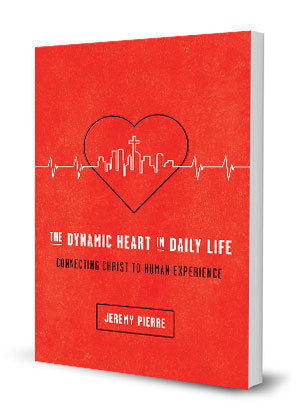
- What makes your heart tick
- How the heart is corrupted and redeemed
- A plan to counsel the heart
What Makes Your Dynamic Heart Tick?
Your heart responds cognitively, affectively, and volitionally to the life’s circumstances. It is multidimentional, it is dynamic. Most important, faith in Christ is the means by which your heart can respond to life differently, better.
Did you know each person’s heart is both simple and complex? The heart has automatic responses to situations. But underlying these seemingly auto-responses are deep beliefs, desires, and commitments of which people are generally unaware.
However, people can become aware and should. While psychotherapy on the whole divides awareness into conscious and subconscious, Scripture has a multifaceted view.
The Dynamic Heart, Corrupted
The corruption of the heart began at the Fall (Genesis 3) and infects all of the dynamic heart: cognition, affection, and volition. It shows up as idolatry.
Idolatry is a whole-hearted inclination that fails to believe God is God and worship him alone.
An alcoholic, then, is not worshipping a bottle but something deeper and more complex—a way to get something good apart from God. As this becomes habitual, the person loses sight what the idol is doing to him and he takes on the deadness of the idol to his detriment. God interrupts, he gives a Cross-shaped message of hope.
The Dynamic Heart, Redeemed
Jesus redeems the dynamic heart so it can do what God intends: worship him in thought, desire, and choice. God made the heart to imitate his own. Did you know you are an image-bearer?
While God is unlike people in many ways (e.g., he is omniscient), he is like people in some ways. For instance, he reasons and has emotion. As believers respond whole-heartedly to God and without reservation in reflective prayer and careful study of Scripture, they become more like Jesus.
Counseling the Dynamic Heart
A plan for counseling the dynamic heart requires four tasks. They are:
READ: Hearing people’s hearts
Llistening is crucial to understanding a hurting person and her problem in its context. Hearing the heart includes paying attention to what the counselee is saying (and not saying).
REFLECT: Helping people understand their responses
Self-awareness helps a hurting her connect her intuitive (or, automatic) responses to their belief system. Then she can challenge her automatic heart responses and begin to change.
RELATE: Looking to Jesus
With greater self-awareness of one’s responses, she sees that the help she needs comes from Jesus. Just as a believer trusts Jesus for her salvation from sin, she also learns to trust him for helping her make new heart responses.
RENEW: Calling for new responses from faith
Commitment to change is key. This requires an active faith since “heart change occurs as it is lived out, shaping and reinforcing new values and commitments,” Pierre writes.
Resources for You!
COUNSELING: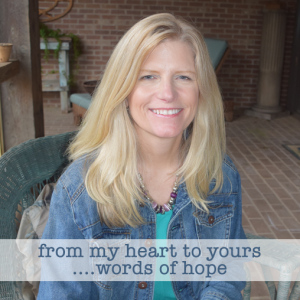 Struggling? I offer biblical counseling by Skype and in person (greater Chicago). Learn more.
Struggling? I offer biblical counseling by Skype and in person (greater Chicago). Learn more.
FIT FOR LIFE eBook: A comprehensive weight-loss and life change plan. Check it out. Click here for information.
ARE YOU A COUNSELOR? Join Heart2Heart Counselor Directory! Get details now..
Sharing Hope with Your Heart,

by Lucy | Jan 10, 2017 | biblical counseling, book reviews
 Books, books, and more books. Here are the top biblical counseling books of 2016, rounded up by guest writer Dr. Bob Kellemen. Enjoy!
Books, books, and more books. Here are the top biblical counseling books of 2016, rounded up by guest writer Dr. Bob Kellemen. Enjoy!

If you are a counselor, pastor, student, one-another minister, small group leader, or spiritual friend, you want to know the most helpful books about the personal ministry of the Word— using God’s Word for helping hurting people.
Here, in alphabetical order, are the top 16 books published in 2016 about biblical counseling or important to biblical counselors.
I’ve selected these books on the basis of their biblical depth, relevance to life, practicality for one-another ministry, faithfulness to the sufficiency of Scripture, application to progressive sanctification, and by surveying what leaders in the biblical counseling world are saying about them.
1. Biblical Church Revitalization
Biblical Church Revitalization: Solutions for Dying and Divided Churches, by Brian Croft, Christian Focus
Biblical counseling is a discipleship ministry of the local church with a mission not simply to be a church with biblical counseling, but a church of biblical counseling. The biblical counseling vision is to saturate the entire congregation with confidence in the sufficiency of Scripture for daily life and ministry. Brian Croft shares that mission and vision. His book, Biblical Church Revitalization, is like engaging in a dozen biblical counseling sessions—for the whole congregation. Pastor Croft walks readers through the process of biblical church health—church progressive sanctification. Every church can benefit greatly from his wise biblical counsel for congregational renewal.
You can read a review of Biblical Church Revitalization by Erik Raymond here.
2. Biblical Counseling Guide for Women
The Biblical Counseling Guide for Women, by John Street and Janie Street, Harvest House
As the modern biblical counseling movement has matured, its resources have progressed from foundational materials for general counseling issues to in-depth materials for specific counseling needs. The husband and wife team of John and Janie Street model this development in their book The Biblical Counseling Guide for Women. They use real-life vignettes, biblical wisdom, and counseling principles to address 17 relevant issues that women commonly face. The embedded discussion questions make this book valuable not only for individual use, but also for small group interaction.
You can read a review of The Biblical Counseling Guide for Women by Jenny Bergren here.
3. Counseling One Another
Counseling One Another: A Theology of Interpersonal Discipleship, by Paul Tautges, Shepherd Press
In Counseling One Another, Paul Tautges builds the theological underpinning for biblical counseling in a way that is both comprehensive and compassionate. This book demonstrates a staunch commitment to an expository, exegetical examination of counseling as presented in God’s Word. Any pastor or lay person wanting a foundational starting point for understanding Christ-centered, comprehensive, and compassionate biblical counseling in the local church would be wise to read and apply Counseling One Another.
You can read a review of Counseling One Another by Zack Ford here.
4. Devoted to God
Devoted to God: Blueprints for Sanctification, by Sinclair Ferguson, Banner of Truth
Glorifying God by becoming more like Christ is the heartbeat of biblical counseling. Sinclair Ferguson shares that passion. In Devoted to God, he offers a lifetime of biblical study as he exegetes 10 central biblical passages about progressive sanctification. His gospel-centered, relevant, practical, in-depth approach makes this an instant classic on the topic of growth in grace.
You can read a review of Devoted to God by Tim Challies here.
5. Discipling
Discipling: How to Help Others Follow Jesus, by Mark Dever, Crossway
Mark Dever’s latest book, Discipling, is part of the Nine Marks Ministries series “Building Healthy Churches.” Like each book in the series, it is a succinct yet robust biblical exploration of local church ministry. Just as biblical counseling seeks to equip the entire congregation for one-another ministry, so Discipling aims to cultivate a discipleship mindset throughout the entire body of Christ. As the subtitle suggests, this book provides the how-to of congregational discipleship.
You can read a review of Discipling by Casey McCall here.
6. Do Ask, Do Tell, Let’s Talk
Do Ask, Do Tell, Let’s Talk: Why and How Christians Should Have Gay Friends, by Brad Hambrick, Cruciform Press
Brad Hambrick thinks deeply about complex life and ministry situations. That’s certainly the case in Do Ask, Do Tell, Let’s Talk. He notes that most conversations about same-sex attraction have become polemical and political rather than pastoral and personal. His desire in this book is to be a resource God uses to grow His people into excellent ambassadors—friends to their classmates, colleagues, and family members who experience same-sex attraction.
You can read a review of Do Ask, Do Tell by Sam Allberry here.
7. The Dynamic Heart
The Dynamic Heart in Daily Life: Connecting Christ to Human Experience, by Jeremy Pierre, New Growth Press
A stereotype of the biblical counseling movement states that biblical counselors focus primarily on external behavior. Jeremy Pierre’s work, The Dynamic Heart in Daily Life, should put that perception to rest. Dr. Pierre presents a compassionate, comprehensive biblical understanding of people—image bearers who are spiritual, relational, social, rational, volitional, motivational, emotional, and physical beings. He examines every aspect of the heart in light of our coram Deo existence—we were designed as in-relationship-to-God beings. Pierre demonstrates how a biblical psychology (understanding of the soul) is essential for biblical counseling (bringing Christ’s redemptive hope to the whole person).
You can read a review of The Dynamic Heart by Theron St. John here.
8. Good and Angry
Good and Angry: Redeeming Anger, Irritation, Complaining, and Bitterness, by David Powlison, New Growth Press
David Powlison is a brilliant thinker. He also happens to be an extremely compassionate counselor. That combination is fully evidenced in Good and Angry. With winsome wisdom, Dr. Powlison enlightens us to the God-intended purpose of righteous anger and to Christ-redemptive hope for addressing unrighteous anger. This book is not just helpful for anger; it is a model for how we can take every aspect of our emotionality to the cross.
You can read a review of Good and Angry by Tim Challies here.
You can read a review of Good and Angry by Erik Raymond at The Gospel Coalition here.
9. Home
Home: How Heaven and the New Earth Satisfy Our Deepest Longings, by Elyse Fitzpatrick, Bethany House
Penned by Elyse Fitzpatrick, Home is not a journey-to-heaven-and-back tell-all memoir. Thankfully. Instead, it is a long-for-heaven-and-live-for-earth biblical narrative. We often hear, “that person is so heavenly minded that they are of no earthly good.” Home encourages us to be so heavenly minded that we are of great earthly good. Even more than that, it invites us to sample a small taste now of the eternal banquet of relational satisfaction we will experience when we are forever home with our heavenly Father.
You can read a review of Home by Aimee Byrd here.
10. Marry Well, Marry Wisely
Marry Well, Marry Wisely: A Blueprint for Personal Preparation, by Ernie Baker, Shepherd Press
In Marry Well, Marry Wisely, Ernie Baker pens a pre-pre-martial manual. In doing so, he doesn’t simply equip us to answer the question, “How do I choose the right spouse?” More importantly, he prepares us to answer the heart question, “How do I become prepared to be the right spouse?” This blueprint establishes the firm groundwork of a Christ-centered and other-centered mindset that is essential for being a godly spouse.
You can read a review of Marry Well, Marry Wisely by Theron St. John here.
11. Parenting
Parenting: 14 Gospel Principles That Can Radically Change Your Family, by Paul Tripp, Crossway
Few things seem to drive us toward an external focus more than the challenges of parenting. Everything inside and around us screams, “Fix it fast!” In, Parenting, Paul Tripp directs us away from a “fix it” focus to a focus on love Him (God) and love your child (care for your child’s heart). Tripp moves us away from a works-based, pharisaical mindset to a grace-based, gospel attitude in our homes.
You can read a review of Parenting by Heidi Strawser here.
12. Theology of Biblical Counseling
A Theology of Biblical Counseling: The Doctrinal Foundations of Counseling Ministry, by Heath Lambert, Zondervan
Of all 16 books on this list, A Theology of Biblical Counseling by Heath Lambert is the most important book for those wanting to understand the doctrinal basis of biblical counseling. Lambert, the Executive Director of the Association of Certified Biblical Counselors (ACBC), explains that “Counseling is a theological discipline” (p. 11). Lambert models that truth in each chapter, as doctrine comes to life in real ministry to real people—dramatically demonstrating how theology intersects with the lives of actual counselees.
You can read a review of A Theology of Biblical Counseling by David Dunham here.
13. Tying the Knot
Tying the Knot: A Premarital Guide to a Strong and Lasting Marriage, by Rob Green, New Growth Press
If Ernie Baker’s book (Marry Well, Marry Wisely) is a pre-pre-marital book, then Rob Green’s Tying the Knot covers the classical pre-marital topics. However, it does not cover them in the classical way—simply as relational skills to be mastered. Rather, this nine-session study directs couples through issues such as conflict, expectations, communication, finances, and intimacy—showing how couples can face each with Christ at the center of their marriage.
You can read a review of Tying the Knot by Tim Challies here.
14. The Vine Project
The Vine Project: Shaping Your Ministry Culture Around Disciple-Making, by Colin Marshall and Tony Payne, Matthias Media
The Vine Project by co-authors Colin Marshall and Tony Payne is the sequel to The Trellis and the Vine. In the prequel, Marshall and Payne cast the vision for an Ephesians 4:11-16 view of pastors as equippers. In The Vine Project, they put feet to that vision by providing practical insight into the local church disciple-making process.
You can read a review of The Vine Project by Kevin Halloran here.
15. Visual Theology
Visual Theology: Seeing and Understanding the Truth About God, by Tim Challies and Josh Byers, Zondervan
As a long-time follower of Tim Challies’ blog, I enjoyed the foundational material that eventually developed into Visual Theology. In the able hands of Challies and Josh Byers, those blog posts translate extremely well into book form. Visual Theology is powerful because it aligns with how God communicates in His Word, how Christ taught people, and how God designed our minds to think—visually, with imagination, in pictures and images. Biblical counselors can learn much from this book about communicating truths not only in words, but also in images and illustrations, especially to this visually-oriented generation.
You can read a review of Visual Theology by Aaron Armstrong here.
16. What Grieving People Wish You Knew
What Grieving People Wish You Knew about What Really Helps (and What Really Hurts), by Nancy Guthrie, Crossway
Nancy Guthrie is one of the foremost Christian writers on loss, grief, hope, and healing. What Grieving People Wish You Knew is the fruit of a lifetime of sharing the comfort she has received from Christ (2 Corinthians 1:3-5). Her narrative reads like a biblical counseling training manual for gospel conversations for suffering. Pastors, counselors, and spiritual friends can all learn much from her biblically compassionate writing.
You can read a review of What Grieving People Wish You Knew by Rachel Hurst here.

Dr. Robert W. Kellemen, Th.M., Ph.D.: Bob is the Vice President for Institutional Development and Chair of the Biblical Counseling and Equipping Department at Crossroads Bible College, and the Founder and CEO of RPM Ministries. Bob was the founding Executive Director of the Biblical Counseling Coalition. For seventeen years he served as the founding Chairman of and Professor in the MA in Christian Counseling and Discipleship department at Capital Bible Seminary in Lanham, MD. He has pastored three churches and equipped biblical counselors in each church. Bob and his wife, Shirley, have been married for thirty-six years; they have two adult children, Josh and Marie, one daughter-in-law, Andi, and three granddaughters, Naomi, Penelope, and Phoebe. Dr. Kellemen is the author of thirteen books including Gospel-Centered Counseling.
by Lucy | Oct 21, 2016 | biblical counseling, book reviews, identity in Christ |

Marie Notcheva highly recommends Because He Loves Me: How Christ Transforms Our Daily Life by Elyse Fitzpatrick. This gem articulates the gospel and encourages readers to live it every day. Marie is a featured Heart2Heart Counselor and writes a blog. Here article appeared first here on her website and is used with permission.

Elyse Fitzpatrick is who I want to be when I grow up.
Of course, I mean that completely in the Ephesians 4:15 sense of “grow up.” The ability to articulate the simple, profound truth of the Gospel and its implications for day-to-day life as beautifully as Elyse has in Because He Loves Me: How Christ Transforms Our Daily Life speaks of a real spiritual maturity. Her passion, from the first page of this encouraging book, is for her reader to have the same joyful, settled assurance of Christ’s love that she herself has found in the pages of Scripture.
Whose Responsible for Your Spiritual Growth?
Why is it that so many of us recognize our need for the Gospel – the Person and work of Jesus Christ – for salvation; then slowly move past the Good News in our daily strivings to “please God”?
We come to the Cross for justification, but practically live as if sanctification depended solely on us.
Click & Tweet!
Elyse spots this tendency – which often leads to a moralistic, defeated attitude – and reminds the reader of the only antidote: applying the finished work of Christ to our continually sinning hearts.
Weaving the entire thread of Scripture around a central point – that God FIRST loved us – Elyse shows how getting this knowlege of His deep, abiding, personal, and unfathomable love for us down into the very marrow of our bones completely changes everything. In fact, it transforms our whole identity – who we reckon ourselves to be.
If we see ourselves as “foster children,” who can be evicted or abandoned at any moment, we will live like it. Realizing we are a permanent, cherished part of the family – His adopted children – transforms our hearts and enables us to live for Christ in His strength.
As she writes, “Any obedience that isn’t motivated by His great love is nothing more than penance” (page 148). Well said.
The Impact of the Gospel on You
How does the Gospel message impact our walk, 10, 20, even 30 years after our conversion, when we can rattle off the Doctrines of Grace like the days of the week?
If we don’t consciously live in the light of His love, the gospel will be secondary, virtually meaningless, and Jesus Christ will fade into insignificance. Our faith will become all about us, our performance, and how we think we’re doing, and our transformation will be hindered.
This tendency to take our eyes off of Him and focus inwardly on our failure becomes a vicious cycle, especially when one is battling a life-dominating sin. Many of you bear witness to this fact. I once received the following e-mail from a reader:
…I have been REALLY struggling again lately. I have trouble turning to God, because I feel sometimes like I don’t deserve His forgiveness, or to ask Him for help.
Lately I have been obsessing about food and eating all day long, and binging and purging A LOT! I work as a nanny, so I am alone with kids and in a house full of junk food I wouldn’t buy, and have found myself unable to keep from destructive eating behaviors.
Please pray for me that I will go back to Christ for guidance, and be able to truly repent for my sin. Please also pray that I will stop worshiping false idols of food and thinness, and instead live to glorify Him… (emphasis mine).
This young lady sincerely loves God and wants to please Him, but her words reveal that she has fallen into the trap so common to all of us: living as if our position before God is based on our own merit.
When did any of us, in our “best” moments, EVER “deserve” His forgiveness? We didn’t. Christ secured it for us – while we were still His enemies. We forget this. When we succeed, we feel good and can worship. Failure brings shame and a fear of approaching God, which naturally leads to more failure and despair. We are, as Elyse points out in this book, essentially not trusting God that He is as good as He says He is.
This is unbelief, and it leads to idols. When we don’t feel fully secure in our position in Christ – solely based on His righteousness and grace – we seek the satisfaction that should be found in Him alone through counterfeits. Putting our trust in these “earthly treasures” leads to fear, worry, and anxiety – which leads us ever further away from the Cross.
Freedom from fear comes from contemplating and remembering the love of God, manifested in Christ. As I have written before (and Elyse so much more articulately), change in our behavior can only come from truly realizing and appreciating who God is and what He has done for us. Knowing that His kindness is what has led us to repentance (Romans 2:4) motivates us to love Him back, and approach Him with confidence. Our ‘identity in Christ’ (as Elyse refers to it; I might use ‘position’) is permanent and irrevocable. It is what frees us up to walk in love.
Remembering God’s Love for You
In the final section of Because He Loves Me, Elyse demonstrates how remembering and contemplating this unfathomable love God has for us is the true motivation for lasting change. She writes,
Our natural unbelief will always cast doubt on His love for us. It is the awareness of His love and only this that will equip us to wage war against sin. Until we really grasp how much He loves us, we’ll never be able to imitate Him.
We won’t come near to Him if we’re afraid of His judgment. We won’t repent and keep pursuing godliness if we don’t believe that our sin doesn’t faze His love for us one bit. We won’t want to be like Him if we believe that His love is small, stingy, censorious, severe. And we’ll never be filled with His fullness until we begin to grasp the extent of His love (Eph. 3:19).
As a member of His family, you’re the apple of His eye, the child He loves to bless.
Click & Tweet!
You’re His darling.
“Every failure in sanctification is a failure in worship.”
Far from minimizing the seriousness of sin, Elyse reminds the reader how costly it was to God – and invites her to rest in this reality. At the same time, we are thus enabled to “wage a vicious war against sin” – the imperative (command) that naturally follows the indicative (what God has already declared to be true). Every sin, from greed to sexual immorality, is a failure to love as we’ve been loved – at its root, unbelief.
The key to walking in freedom and joy, then, is remembering that we’re beloved children, redeemed by Jesus, set free from the power of sin. This settled confidence produces thanksgiving ane edifying speech, rather than complaining and bitterness. This is what applying the Gospel to every area of our lives looks like in practice.
I have been recommending Because He Loves Me to women who write me about their specific struggles, as well as counselors and anyone else who would benefit from the reminder of what Christ’s perfect life, love, cross, resurrection, and intercession really mean to us as we grow in Him.
In short, everyone reading this would likely benefit from the encouraging and joyful explanation Elyse presents on the synergy of God’s grace and our response. Like C.J. Mahaney’s The Cross Centered Life, Because He Loves Me trains the reader to reflect more deeply on the finished work of Christ on her behalf as a catalyst to worship, rather than presenting sanctification as a spiritual self-help plan.
See more about this wonderful book here.
Sharing Hope with Your Heart,

 You have a choice to heal, even when you’ve faced childhood sex abuse, among the most awful experiences a woman can have. In this article by acclaimed author Dawn Scott Damon, you’ll discover potholes on the road to recovery.
You have a choice to heal, even when you’ve faced childhood sex abuse, among the most awful experiences a woman can have. In this article by acclaimed author Dawn Scott Damon, you’ll discover potholes on the road to recovery. 
 Dawn Scott Damon is a pastor, speaker, and author whose most recent book, When the Woman Abused Was You, released in 2017 and is the second book in a series. Dawn’s first book in this series, When A Woman You Love Was Abused has touched thousands of lives – both men and women.
Dawn Scott Damon is a pastor, speaker, and author whose most recent book, When the Woman Abused Was You, released in 2017 and is the second book in a series. Dawn’s first book in this series, When A Woman You Love Was Abused has touched thousands of lives – both men and women.

 Empty nest.
Empty nest. Author
Author  Empty nest.
Empty nest.  The Dynamic Heart in Daily Life: Connecting Christ to Human Experience
The Dynamic Heart in Daily Life: Connecting Christ to Human Experience 

 Struggling? I offer biblical counseling by Skype and in person (greater Chicago).
Struggling? I offer biblical counseling by Skype and in person (greater Chicago).  Books, books, and more books.
Books, books, and more books.




